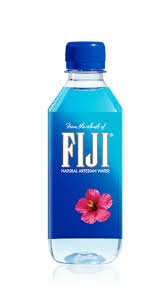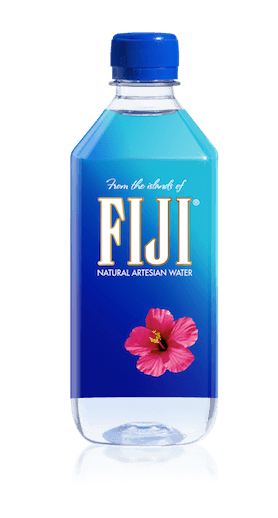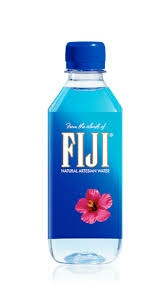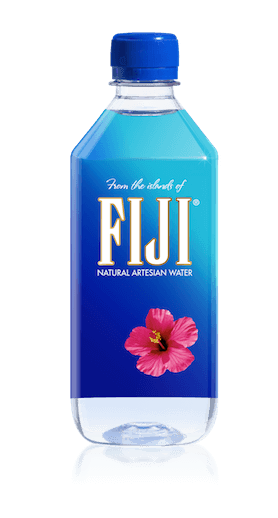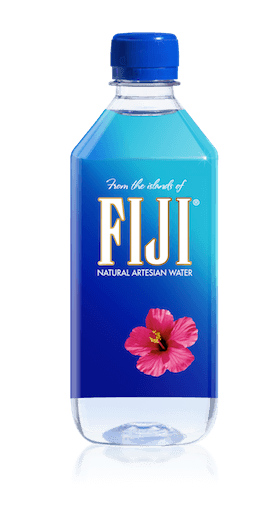Information
-
Site conducted
-
Document No.
-
Conducted on
-
Client / Site
-
Project Name
-
Responsible Party
- Capital Projects
- Elisha Engineering
- Vijay Pal Construction
- Team Energy
- Scaff and Scaff
- Krishna General Works
-
Location
- Line 1
- Line 2 Dry Side
- Line 2 Wet Side
- Line 3 Dry Side
- Line 3 Wet Side
- Raw Material Warehouse
- Baling Area
- Resin Bay
- Loading Bay 1
- Loading Bay 2
-
If "other" was selected provide location
-
General Contractor (If applicable)
-
Safety Evaluator
SITE EVALUATION
AERIAL and SCISSOR LIFTS
-
Does the crew maintain a JSA, properly filled out and within 15 feet (4.5 meters) of work being performed?
-
Workers have been trained in the use of equipment?
-
Lift occupants wearing harness correctly? Employees been trained in fall protection?
-
Workers tied off to boom or basket using the manufacturers anchor points?
-
Lift controls clearly marked and readable?
-
Both feet remain on the floor of the basket?
-
Operators are staying within the load limits of the basket / lift?
-
Lift is stationary when boom is elevated?
-
Operators / employees are refraining from transferring at height while in a scissor lift?
-
Mid-rail chain / gate used when in operation?
-
Operators maintaining safety compliance while operating lift?
-
Notes:
CONCRETE / MASONRY
-
Does the crew maintain a JSA, properly filled out and within 15 feet (4.5 meters) of work being performed?
-
Rebar / flat stakes guarded (covered) to eliminate impalement hazard?
-
Employees working in concrete wearing proper hand and foot protection?
-
Connectors, ties or whips used to secure pressurized air hoses?
-
Guard down on pump (pump truck)?
-
Masonry saw blades guarded?
-
Fugitive dust controlled while cutting block or conducting finish work?
-
Masons wearing face shields AND safety glasses while cutting block?
-
Formwork capable of supporting vertical / lateral loads?
-
Shoring equipment inspected?
-
Base plates secured to foundation / mud sill / formwork?
-
Jacks / supports do not exceed the rated capacity?
-
Limited access zone equal to the wall height plus 4 feet (1.2 meters)?
-
Limited access zone strictly enforced?
-
Walls over 8 feet (2.5 meters) braced to prevent collapse?
-
Masons maintaining safety compliance?
-
Notes:
CONFINED SPACE
-
Does the crew maintain a JSA, properly filled out and within 15 feet (4.5 meters) of work being performed?
-
JSA and rescue plan on-site and available? Employees been trained on the plan?
-
Entry permit completed and signed?
-
Air sampling completed and documented prior to entry?
-
Proper warning signage posted at entry to the permit space?
-
Forced air ventilation used for the duration of entry?
-
Proper lighting provided?
-
Rescue team trained and readily available?
-
Retrieval system (Tripod) available and utilized?
-
Entrants attached to the retrieval line?
-
Attendant on duty outside the permit space?
-
Attendant only performs monitoring duties?
-
Confined space team is maintaining safety compliance?
-
Notes:
CRANES / RIGGING
-
Does the crew maintain a JSA, properly filled out and within 15 feet (4.5 meters) of work being performed?
-
Crane(s) inspected and properly maintained?
-
Crane operator, rigger and signal person certified?
-
Crane load charts visible to the operator?
-
Hand signal charts posted or available?
-
Fire extinguisher located within the cab?
-
Pick (Lift) plan on-site, reviewed and the load is within load capacity?
-
Crane outriggers fully extended and on cribbing properly?
-
Crane swing radius identified and barricaded?
-
Workers remained clear of the in the swing radius and under suspended loads?
-
All power lines are a minimum 15 feet (4.5 meters) away from all lifting and boom swing radius?
-
Rigging equipment inspected and in good condition?
-
Rigging equipment maintain lift capacity markings?
-
Crane operations maintaining safety compliance?
-
Notes:
ELECTRICAL
-
Does the crew maintain a JSA, properly filled out and within 15 feet (4.5 meters) of work being performed?
-
Electrical cords maintain ground posts?
-
Electrical cords are free from damage / repair / alterations?
-
Electrical cords protected from damage (roll over)?
-
Doorways and windows are free from electrical cords?
-
Electrical cords kept clear of work areas and walk ways?
-
Electrical cords are rated for construction? Flat cords removed from site?
-
Spider box being inspected quarterly? (Assured Grounding Program)
-
Power strips and 3 way splitters construction rated?
-
Electrical equipment being used per the manufacturers specifications?
-
Are GFCI's (ELCB) being used, if not on an AGP? Is the GFCI being used closest to the operator?
-
All outlets have cover plates when outlets are energized?
-
Temp light cords are hung with non-metallic fastener, off the ground and does not cause a hazard?
-
Temp light bulbs maintain cages and all bulbs?
-
Electrical rooms maintain proper warnings and labels per NFPA 70e or equivalent?
-
Access to electrical room(s) restricted per NFPA 70e or equivalent?<br>
-
Electrical panels are covered, labeled and all breaker slots are covered?
-
3 foot clearance around all electrical panels being maintained?
-
Employees are clear of all unprotected circuits / panels?
-
Employees are locking and tagging out equipment and panels? (NOT working on hot equipment)
-
Employees working with energy maintaining safety compliance?
-
Notes:
FALL PROTECTION
-
Does the crew maintain a JSA, properly filled out and within 15 feet (4.5 meters) of work being performed?
-
JSA and fall protection rescue plan has been established and all effected employees have been trained?
-
All employees have been trained in fall protection?
-
A fall protection system is provided for all employees working above 6 feet (1.8 meters)
-
PFA rigged to prevent contact with any surface? (Max fall distance allowed is 6 feet (1.8 meters))
-
Harnesses have been inspected prior to use?
-
Employee wearing harness correctly, wearing the appropriate lifeline (lanyard) and attached to an anchor?
-
Fall protection anchors are set up per specifications and all elements are rated to 5000 lbs (2268 kg)?
-
Guardrails are able to with stand 200 lbs (91 kg) outward and down force?
-
Guardrails (cable rails) do not exceed 2 inch (50 mm) deflection in any direction?
-
Guardrails and mid-rails are at the proper height?
-
Guardrail posts are not more than 8 foot (2.4 meters) On center?
-
Guardrails / mid-rails are constructed to be on the inside on the guardrail posts?
-
Guardrails and mid-rails have been placed around floor / roof openings?
-
Floor holes greater than 2 inches (50 mm) have been covered, properly labeled and secured from movement?
-
The fall protection selected is appropriate for the fall exposure?
-
Floor hole covers are capable of handling 2 times the intended load?
-
Warning line 6 feet (1.8 meters) back for roofing activities?
-
Warning line 15 feet (4.5 meters) for non-roofing activities?
-
Safety monitor performs only monitoring duties?
-
Safety monitor is at the same surface as the work with visual and verbal contact?
-
Warning line erected on all open sides?
-
Warning line flagged and suspended at proper height?
-
Access and hoisting areas guarded?
-
All materials stored more than 6 feet back from roof or deck edge?
-
Safety compliance being maintained?
-
Notes:
FIRE SAFETY
-
Does the crew maintain a JSA, properly filled out and within 15 feet of work being performed?
-
Employees trained in the use of fire extinguishers?
-
Fire extinguishers in good condition, fully charged and recently inspected?
-
Fire extinguishers replaced annually?
-
Fire extinguishers are within 75 feet (22 meters) of workers?
-
Fire extinguishers within 15 feet (4.5 meters) of hot work?
-
Minimum of 1 fire extinguisher per floor / level?
-
Fire extinguishers within 50 feet (15 meters) of flammable materials?
-
Flammables stored in an approved and closed containers?
-
No smoking signs posted near flammables?
-
Flammable liquids protected from ignition sources?
-
Flammables are clear from access and egress locations?
-
Scrap piles, debris and trash stored more than 10 feet (3 meters) from building or structure?
-
Maintaining fire safety compliance?
-
Notes:
FORKLIFTS
-
Does the crew maintain a JSA, properly filled out and within 15 feet (4.5 meters) of work being performed?
-
Forklift operators been trained for the specific forklift they are operating?
-
Forklift inspected prior to use?
-
Forklifts are free from modifications or alterations?
-
Outriggers being used on extended reach fork lift?
-
Forklift is operating within lift capacities?
-
Forklift slings have been inspected and maintain lift capacity tags?
-
Forklifts have lift, load and angle charts?
-
Forklift has fire extinguisher in the cab?
-
Forklift forks are down when not in operation?
-
Forklift operator wearing seat belt when in operation?
-
Forklift has an audible back up alarm that can be heard up to 200 feet (60 meters) away?
-
Spotters are used when forklift has to travel through barrier curtains or blind accesses?
-
Operator is traveling less than 15 MPH (24 kilometers) stopping at all intersections and stop signs?
-
Workers are clear of all lifted / suspended loads?
-
Lift basket secured to forklift?
-
Forklift maintains an operator when the lift basket has employees in it?
-
Forklift operators maintaining safety compliance?
-
Notes:
HOUSEKEEPING
-
Does the crew maintain a JSA, properly filled out and within 15 feet (4.5 meters) of work being performed?
-
Impalement hazards (flat stakes, rebar or other like material) maintain impalement protection?
-
Work site / location reasonably organized - Good housekeeping?
-
Lunch trash picked up and removed from site?
-
Trash removed at regular intervals?
-
Scrap, pipe cut offs, pipe and other slip / trip hazards removed?
-
Staging / lay down area in good condition / good housekeeping?
-
Gang boxes free from combustible / flammable materials?
-
All scrap lumbar / planks has nails removed or bent over?
-
Housekeeping is being maintained?
-
Notes:
LADDERS and STAIRS
-
Does the crew maintain a JSA, properly filled out and within 15 feet (4.5 meters) of work being performed?
-
Ladders inspected / no visible defects?
-
Ladders rated for construction (1 AA ladder) ?
-
Spreaders fully extended and locked into position on A frame ladders?
-
Top two steps of a step ladder not being used?
-
Ladders set up on firm stable base?
-
Ladders being used for the intended purpose?
-
Proper ladder selected for task?
-
Extension ladder extends 3 feet (.91 meters) above landing surface?
-
Extension ladder set up at 4:1 angle?
-
Extension ladders tied off at the top and secured at the bottom to prevent slip?
-
Stair/ladder/ramp used at elevation break of 18 inches (457 millimeters) or more?
-
Handrails on stairs with 4 or more risers?
-
3 feet around the ladder at the top and bottom remain clear of all materials and debris?
-
Employee is maintaining 3 points of contact while climbing ladders?<br><br>
-
Treads / landings on pan stairways filled?
-
Ladder / steps used when access a flat bed trailer?
-
Ladder users maintaining safety compliance?
-
Notes:
MEDICAL / FIRST AID
-
Emergency numbers posted on site, visible to all employees?
-
Location of nearest medical facilities posted, visible to all employees?
-
Eye wash / body wash stations set up when required?
-
Every trade maintains their own first aid kit / supplies? First aid kit fully stocked?
-
A minimum of 1 CPR / FA / AED certified employee per crew?
-
Maintaining safety compliance with medical / first aid?
-
Notes:
PERSONAL PROTECTIVE EQUIPMENT
-
PPE provided to the employee / available as required?
-
PPE being maintained in good condition?
-
Replacement PPE readily available?
-
Hard hats being worn, properly and without alterations?
-
Eye protection used as required? Glasses rated as eye protection?
-
Hand protection used when required? (Digging, handling tag lines etc)
-
Safety boots (Steal toe) footwear worn when required (Compacting soil, jack hammering etc)?
-
Respirators provided / used as required?
-
Has the employee been trained in respiratory protection?
-
Does employer maintain a current written respirator program?
-
Has the employee been seen by a physician and been fit tested?
-
Employee using the proper filter for respirator?
-
Respirator being stored correctly?
-
Hearing protection used as required?
-
Face protection used as required?
-
High visibility clothing worn as required?
-
Maintaining safety compliance with personal protection equipment ?
-
Notes:
POSTINGS / SAFETY SIGNS
-
OSHA Workplace Poster displayed at all locations?
-
Emergency numbers / contacts posted?
-
OSHA 300 log posted Feb. 1st through April 30th?
-
Danger / warning signs posted? Each site maintains proper signage?
-
Danger - Keep out / Construction signs posted on security fencing?
-
All posting meet safety compliance?
-
Notes:
SANITATION
-
Adequate supply of potable water provided at no cost to the employee ( Minimum of 1 quart of water per hour per employee)?
-
Single use, disposable drinking cups provided? (Common cup and drinking directly from the container is prohibited)
-
Trash cans provided at all drinking locations?
-
NON-POTABLE water is clearly marked and identified?
-
1 toilet per 20 workers at the job site? Females have a separate facilities?
-
Hand washing stations provided? 1 hand washing outlet per 20 workers?
-
Facilities (toilets and hand washing facilities) are being maintained in sanitary conditions?
-
Sanitation locations are being maintained in good conditions and maintaining safety compliance?
-
Notes:
SCAFFOLDS
-
Does the crew maintain a JSA, properly filled out and within 15 feet of work being performed?
-
Guard rails are installed and secured between 42 - 48 inches (1066 - 1219 millimeters) off of platform?
-
Mid-rails are installed and secured between 21 - 24 inches (533 - 609 millimeters) off of platform?
-
Perry Scaffolds has guard rails and mid rails when platform is at 6 feet (1.8 meters)?
-
Perry Scaffolds have outriggers when scaffold is 3 times the base?
-
Perry Scaffold is built per manufacturers specifications?
-
Employees are not "surfing" or scooting on Perry Scaffolds?
-
Employees have both feet on the platform at all times?
-
Trades maintaining good compliance with Scaffolds?
-
Scaffold(s) are free of materials for the employees to gain additional height?
-
All employees have been trained in Scaffold Awareness to work off of scaffolds?
-
Competent person inspecting scaffold before daily occupancy? From all trades working off of scaffolds?
-
Scaffold inspection tags are located at each scaffold ladder? Inspection tags filled out and maintains current inspections?
-
Scaffold was erected under the supervision of a Competent Person?
-
Working platforms fully planked?
-
Fall protection provided at 6feet (1.8 meters) and above?
-
Legs / frames bear on base plates / mud sills?
-
Mud sills free from undermining?
-
Base plates / mud sills clear from dirt, debris and obstructions? Able to inspect? Base plate secured to mud sill?
-
Planks in good condition? Scaffold grade planks? Free from splits, cuts and damage?
-
Planks / Working platform clean, free from excessive debris, trash and materials?
-
Ladder provided and used to access all scaffold platforms?
-
Scaffold plank overlap a minimum of 6 inches (152 millimeter) max. to 18 inches (457 millimeters) and overlap is over a frame?
-
Scaffold is tied into structure at 12 (3.6 meters) 26 (7.9 meters) and 30 feet 9.1 meters) (or top of structure)?
-
Toe-boards provided above all access / egress points and anywhere employees are working below?
-
All types of scaffold(s) maintaining safety compliance?
-
Notes:
STEEL ERECTION
-
Does the crew maintain a JSA, properly filled out and within 15 feet of work being performed?
-
Site erection plan available for review?
-
Lay down area graded, drained and adequate?
-
Decking secured upon placement?
-
Guardrails around stair / elevator / perimeters openings?
-
Floor opening covers properly marked and secured?
-
Tools secured against accidental displacement?
-
Perimeter cables installed when decking is completed?
-
Perimeter cables flagged at 6 foot (1.8 meters) intervals?
-
Perimeter cables maintain less than 2 inch (50 millimeter) deflection?
-
Iron workers / steel erection maintaining safety compliance?
-
Ramps and runways properly guarded?
-
Notes:
TOOLS (HAND and POWER)
-
Does the crew maintain a JSA, properly filled out and within 15 feet of work being performed?
-
Hand and power tools in safe operating condition?
-
Tool guards in place and functional on all power tools?
-
All tools stopped and turned off / unplugged during maintenance / refueling?
-
Power tools maintain a ground post or be double or triple insulated?
-
Tools are in like new condition with no alterations, repairs or damage?
-
Handles on tools free from splinters and cracks?
-
Safety spring(s) being maintained in all nail guns?
-
Grinders and cutting wheels maintain fully functioning guards?
-
All air delivery equipment maintain air pressure gauges and hose connection safety's (ties/whips/connection pins)?
-
Tools are properly hoisted / lowered?
-
All tools being maintained within safety compliance?
-
Notes:
TRAFFIC CONTROL
-
Does the crew maintain a JSA, properly filled out and within 15 feet (4.5 meters) of work being performed?
-
Personal trained in work zones traffic safety techniques?
-
Manual on Uniform Traffic Control Devices available?
-
Traffic Control Plan available and updated?
-
Work zone inspected? Documented?
-
Warning signs visible and spaced properly?
-
Warning signs alert drivers to upcoming road work?
-
Warning signs in good condition, legible, clean and working?
-
Delineation devices (cones, barrels, panels) positioned properly?
-
Delineation devices (cones, barrels, panels) in good condition?
-
Barricades provided / placed where required?
-
Barricades erected with correct directional stripes?
-
High visibility clothing is worn within the work zone? Proper rating (class 2 or class 3)?
-
Beacon lights activated on vehicles near active traffic lanes?
-
Contractors maintaining traffic control safety?
-
Notes:
TRENCHING / EXCAVATION
-
Does the crew maintain a JSA, properly filled out and within 15 feet (4.5 meters) of work being performed?
-
Competent person identified on the JSA and has completed daily inspections?
-
Competent person on-site and at location when trench is occupied?
-
Soil has been properly classified by manual tests and properly documented?
-
Competent person identified on the JSA and has completed daily inspections?
-
Atmospheric conditions tested prior to entry (where required) ?
-
Employees are protected from cave-in by protective systems?
-
Sloping / benching adequate for soil type?
-
Spoils / materials / equipment set back 2 feet (.6 meters) from edge? No material / equipment on the benches?
-
Travel distance to egress is no more than 25 feet (7.62 meters)?
-
Stability of adjacent structures ensured?
-
Pavements / structures not undermined unless supported?
-
Utilities located / identified prior to start of excavation? PM or Dig Alert contacted?
-
Signs / barricades provided on all open trenches? Barricades a minimum of 6 feet (1.8 meters) away from the trench?
-
Surface encumbrances removed or supported?
-
Water runoff controlled to prevent accumulation?
-
Access prohibited when water accumulation is uncontrolled?
-
Back filling occurs following removal of support system?
-
Trenches and excavations are within good safety compliance?
-
Excavation shield / trench box extend at least 18 inches (457 mm) above shelf or vertical slide?
-
Excavation contractor maintaining safety compliance?
-
Notes:
WELDING / CUTTING / HOT WORK
-
JSA and Hot work permit filled out completely and is accurate?
-
Welding screens provided and used when required?
-
Regulators / gauges / valves in proper working order?
-
Cylinders maintained in good condition?
-
Welding hoses in good condition?
-
Fire extinguisher within 20 feet (6.1 meters) of hot work?
-
Valve caps in place when stored / transported?
-
Area identified and employees protected from falling slag?
-
Combustibles removed / protected from heat / spark / slag?
-
Cylinders secured in upright position?
-
Fuel gas cylinders separated from oxygen cylinders (by 20 feet / 6.1 meters) when not in use, or has a firewall between tanks?
-
Fuel gas has a flash arrestor in-line or at the handle?
-
Cylinders in transportation are secured in a vertical position?
-
Fire watch is in place when required?
-
Welders are operating safely and maintaining safety compliance?
-
Notes:
OTHER
-
Construction areas properly illuminated?
-
Security fencing installed, maintained in good condition and is closed when site is not occupied?
-
Frequent / regular inspections by the contractor of the job site completed? Documented?
-
Defective equipment tagged or removed from job site?
-
Was the site free from any Immanent Danger to Life or Health (IDLH) exposures?
-
Notes:
MISC. INFORMATION
-
Notes:
-
This space is available for draw out.
